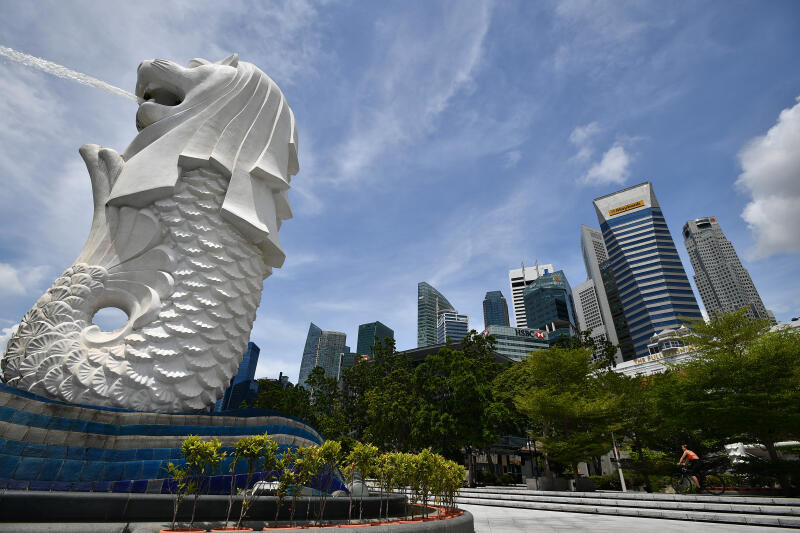New Green Plan will see Singapore setting sustainability targets for 2030
Sign up now: Get ST's newsletters delivered to your inbox

The plan will be continually refined as circumstances change, new opportunities emerge, and input is sought.
PHOTO: ST FILE
SINGAPORE - The Republic will ramp up its sustainability drive, with agencies across ministries setting "ambitious and concrete targets" under a new initiative called the Singapore Green Plan 2030.
The plan will be continually refined as circumstances change, new opportunities emerge, and input is sought from citizens, businesses and communities, Ms Grace Fu, Minister for Sustainability and the Environment, told Parliament on Monday (Feb 1).
"Ministers and political office holders will be actively involved in the development of comprehensive programmes, as part of this national engagement process," she said.
More information will be given in the coming weeks, she added during the debate on a motion filed by six PAP backbenchers calling on Singapore to deepen and speed up efforts to mitigate and adapt to climate change.
Deputy Prime Minister Heng Swee Keat will speak about the nation's sustainability agenda during the debate on the Budget, which will be delivered on Feb 16, she said.
Ms Fu did not give details on what targets this could be.
National sustainability targets have been set before. For instance, under the Sustainable Singapore Blueprint 2015, which contains a series of environment goals to be met by 2030, the country has set targets for recycling, cycling path lengths, and park connectors, for instance.
Ms Fu told Parliament: "The Government has every intent... to partner the private sector and the people of Singapore, to deepen and accelerate efforts to mitigate and adapt to climate change, and to embrace sustainability."
Six MPs - Mr Louis Ng (Nee Soon GRC), Ms Poh Li San (Sembawang GRC), Ms Cheryl Chan (East Coast GRC), Ms Hany Soh (Marsiling-Yew Tee GRC), Mr Gan Thiam Poh (Ang Mo Kio GRC) and Mr Don Wee (Chua Chu Kang GRC) - had filed the private member's motion, which allows all MPs to take part in the debate.
The MPs called on the Government to partner the private sector and the people of Singapore in bolstering efforts to mitigate climate change and embrace sustainable development.
They also put forward 10 recommendations, including getting the public sector to take the lead in environmental sustainability initiatives with higher and expanded standards, and having an industry transformation map for the sustainability sector.
Other recommendations include making public the emissions data of top-emitting private and public entities, setting up more electric vehicle charging points, expanding climate education in schools and adding climate defence as a seventh pillar of total defence.
The MPs, who sit on the Government Parliamentary Committee for Sustainability and the Environment, also called on the authorities to embark on a regular review of Singapore's carbon tax to between $75 and $120 per tonne of greenhouse gas emissions by 2040 - up from the current rate of $5 per tonne.
The Government had said previously that it plans to increase the tax rate to between $10 and $15 per tonne of emissions by 2030 - a rate that critics say is still too low.
"We are pushing hard for changes but at the same time, we are mindful not to push people and businesses away. We are mindful of the trade-offs," said Mr Ng. "All of us believe that a healthy economy and a healthy planet can, and should, go hand in hand."
In response, Ms Fu noted that sustainability has always been a focus for Singapore.
She pointed to initiatives that go back to the country's early years, such as the 1971 Clean Air Act, which imposes stringent pollution controls so industrialisation does not come at the expense of the environment.
"We have been able to come this far by safeguarding not just the environment, but also ensuring economic growth and social inclusion; and galvanising Singaporeans to build a fair and just society, of hope and opportunity, that is sustainable, inclusive and resilient," she said.
But as Singapore pursues sustainability, Ms Fu said that candid discussions on the costs and trade-offs involved will have to be had.
"These costs may manifest in the change in the price for a good or service we enjoy today, the cost of producing a product, the need to allocate scarce resources to a new solution, the investment in new infrastructure, or some inconveniences in changing our habits and the way we do things," she noted.
That is why choices must be evaluated carefully, Ms Fu added. She thanked the MPs who spoke on this issue for their suggestions, saying each will be considered seriously.
"For some, you will be pleased to know that work is under way and you will hear more about it in the Green Plan. For others, more time may be needed for study and review," she said. "Sustainability is not just about doing more, but doing more together, in an inclusive way, with all our stakeholders on board."


